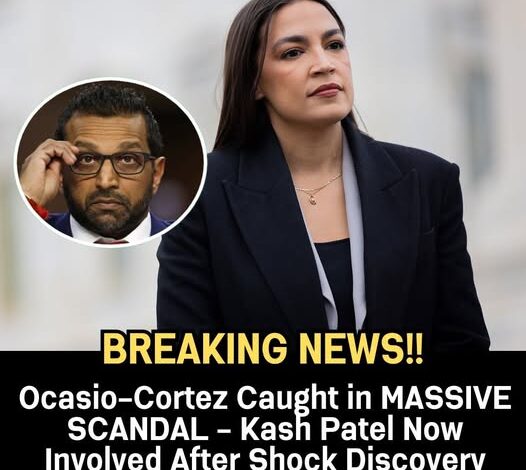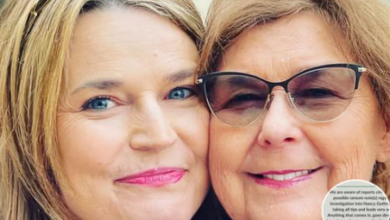
How AOCs District Became a Federal Law Enforcement Battleground!
For years, Roosevelt Avenue in Queens has been both a hub of immigrant life and a lightning rod for controversy. Under the elevated 7 train tracks, where once thriving family-owned shops and restaurants welcomed newcomers from across the globe, a darker trade has taken root. Today, residents say the stretch is better known as an unofficial red-light district, where human trafficking, prostitution, and organized crime play out in plain sight.
Locals describe brothels masquerading as bodegas or massage parlors. They point to gangs openly running drug operations on street corners and to young women — many of them suspected trafficking victims — being forced to solicit even near schools. Families say the neighborhood’s transformation is not just an inconvenience; it is corroding their daily lives and their children’s sense of safety.
Community Outrage Boils Over
Fed up after years of what they call failed local crackdowns, community leaders decided to bypass their congresswoman, Rep. Alexandria Ocasio-Cortez (AOC), and take their case directly to Washington. The group Restore Roosevelt Avenue has become the voice of neighborhood frustration. They’ve organized marches, staged protests outside suspected brothels, and appealed directly to FBI Director Kash Patel for a federal-level response.
“Our kids shouldn’t have to see women being forced to sell their bodies,” said Rosa Sanchez, a spokesperson for the coalition. “It’s not just about crime; it’s about our children’s mental health, their sense of what’s normal. This is not what Roosevelt Avenue was meant to be.”
The group’s demands are clear: a sweeping federal investigation using racketeering and human trafficking laws to dismantle the entrenched networks they say local police cannot touch. They argue that piecemeal arrests simply shuffle players around, allowing the business to resume days later.
The Numbers Tell the Story
This year alone, police have made more than 350 arrests tied to prostitution and related crimes along Roosevelt Avenue. Yet residents say the efforts are barely scratching the surface. Arrest one dealer or trafficker, they argue, and another takes his place almost immediately.
Federal law enforcement has already made some inroads. In April, agents arrested eight suspected members of the 18th Street gang, a notorious group linked to violence on the strip. Authorities have also tracked ties between Roosevelt Avenue and international networks, including the Venezuelan gang Tren de Aragua and Chinese organized crime groups.
But residents insist those arrests are not enough. They are calling for the kind of comprehensive, multi-agency operations that dismantle networks rather than simply disrupt them.
Political Tensions Emerge
The crisis has also become a political fault line. Rep. Ocasio-Cortez has pushed for federal funding for nonprofits that assist trafficking victims. She has emphasized the need to treat exploited women with compassion rather than punishment. While many residents agree on protecting victims, critics say her approach does little to dismantle the criminal organizations running the trade.
By contrast, Rep. Grace Meng, who represents a neighboring Queens district, has gained praise from some Roosevelt Avenue activists. Meng has pressed for more federal law enforcement resources and stronger coordination with the NYPD. The comparison has sharpened criticism of AOC, with some constituents accusing her of neglecting the immediate safety concerns of her district.
“She talks about systemic change, but we need help now,” said one father who lives near the strip. “It’s not just about programs. It’s about stopping gangs from running our streets.”
The Limits of Local Enforcement
Local law enforcement faces practical challenges. Using nuisance abatement laws, police can temporarily shut down suspected brothels, but these operations often reopen within weeks, sometimes in the same block or just a few doors down. For families walking their children to school, it feels like a never-ending cycle.
“We don’t want to see the women punished,” Sanchez explained. “Most of them are victims. What we want is to see the traffickers, the bosses, the gangs who profit from them, taken off our streets for good.”
More Than a Neighborhood Issue
While the fight over Roosevelt Avenue feels intensely local, experts say it reflects larger national problems — the strain of immigration policy, the challenges of urban policing, and the reach of international organized crime into American cities. Queens, long known as one of the most diverse places in the world, has become a frontline for these interconnected issues.
Residents are adamant that silence is no longer an option. They describe altering their daily routines — avoiding certain blocks at night, steering their children away from certain subway entrances, pretending not to hear solicitation as they pass. The psychological toll, they argue, is as damaging as the crime itself.
A Flashpoint for the Future
For now, Roosevelt Avenue remains a flashpoint — politically, socially, and morally. Will federal intervention arrive, and if it does, will it finally dismantle the entrenched criminal networks? Or will the cycle of arrests and reopenings continue, leaving families to fend for themselves?
One thing is clear: the residents of Queens are not waiting quietly. Their voices, sharpened by years of frustration, are growing louder, and they are demanding accountability — from gangs, from law enforcement, and from their elected leaders.
In the words of Rosa Sanchez: “This isn’t just about crime. It’s about dignity. It’s about whether our children can grow up believing their neighborhood is a safe place. We won’t stop until that’s true again.”




